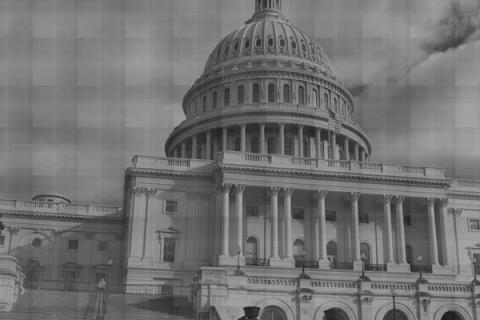As the country remains highly polarized and chronically dissatisfied with the performance of the two major parties, the internet, and advent of social media in particular, could catalyze the historic campaign of an Independent presidential candidate as early as 2012.
Joe Trippi, the internet guru behind Howard Dean's remarkable 2004 presidential campaign and the mind behind Jerry Brown's 800 number fundraising effort during his 1992 presidential run, echoed this sentiment at the South by Southwest Interactive festival's recent gathering.
"There's going to be a moment, and it could be in 2012-you know for my party's sake, I hope it's in 2016- but some independent candidate is gonna just come out of nowhere and raise a billion dollars on the Internet, saying 'screw both these parties, it's you and me baby, let's go change this thing,'" Trippi said in regards to how the internet has blown open the political process, thus enabling a more democratic environment to take place in the arena of American politics.
Author of the book The Revolution Will Not Be Televised: Democracy, the Internet, and the Overthrow of Everything, Trippi discusses how he leveraged the internet's enabling ability of allowing a two-way interaction between candidate and voter to spur a people-driven movement for Howard Dean's 2004 presidential run. Considering the public's discontent with members of the two parties who aren't really addressing the concerns of voters in the independent community and the American public as a whole, it's not all that hard to see how a candidate with independent political status can use the internet's tools to have a productive conversation and energize a substantial monetary base of support from Americans who desire to see true change.
The difference between internet and television is that the former isn't limited to those with the most money to buy up all the campaign slots. Furthermore, tools like social media (when used correctly) are not only more cost-effective than buying television ads, they also encourage a productive two-way conversation between candidates and their constituents. With social media, candidates are actually forced to communicate effectively instead of selling their talking points like products needing to be purchased in late-night television informercials.
Even as Republicans have sought to catch up with the new media monster machine of President Barack Obama, what they and their Democratic colleagues are forgetting is that the battle on the internet for the hearts and minds of voters isn't confined to the elite Washington Establishment.
Being a truly democratic environment open to anyone and everyone, the internet is a ripe place for a Cinderella third party candidate to seize the day and authentically engage disenchanted voters. With the public's approval of Congress remaining low both before and after the Republican takeover, as well as relatively low approval ratings for President Obama, an independent candidate could prove viable if he plays his cards right.
Aided by the fluid medium of the internet, the impending doom of the two-party system might just arrive sooner rather than later. In fact, Gerald Celente, founder and director of the Trends Research Institute, has predicted that in 2012 a legitimate third party candidate is likely to challenge Obama and the Republican nominee. As my colleague Ryan Jaroncyk noted back in 2009:
"Celente posits that the development of a robust third party will serve as the culmination of the next American Revolution, a largely intellectual revolution that will revive the spirit and mind of the American people. 2012 will commence the American Renaissance, as the nation exits the era of corporatism, perpetual war, government secrecy, and gargantuan debt, and returns to its 1776 roots of constitutional government, individual liberties, limited war, innovation, states' rights, and fiscal responsibility."
And much like Trippi, Celente is calling this potential third party challenger the "Internet Candidate".
With the internet at their disposal, along with Trippi's and Celente's bold predictions, the future seems bright for truly independent-minded voters looking to break the chains of the two-party system.

